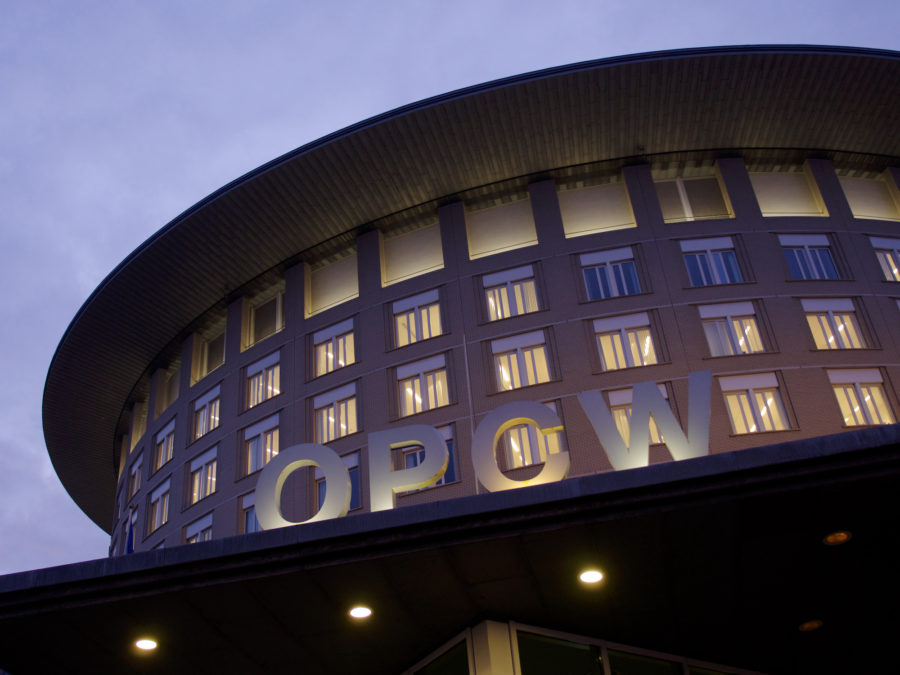23rd May 2022
Twenty five years of the Chemical Weapons Convention

Sarah Price has been Head of the UK Government’s Counter-Proliferation & Arms Control Centre since 2018. Between 2013 and 2017, she was British Ambassador to Finland.
I first encountered the CWC as deputy Ambassador in Belgrade in 2003 when I accompanied UK experts to bilateral discussions on (then) Serbia & Montenegro’s CWC Declaration. I was intrigued by the concept of banning an entire class of weapon, so when I returned to London a year later, I was excited to accept a job as deputy Head of The Counter-Proliferation Department.
Those were optimistic days for the Convention: the number of countries signing up was growing fast and though there were still large stockpiles, we had a plan and budgets to destroy them. Libya’s decision to declare its past programme and the international cooperation that followed seemed to augur a new openness to neutralising the threat of WMD through multilateral treaties. The talk in the margins of CWC Conferences of States Parties (CSP) was of how to slim down the OPCW Technical Secretariat once destruction was completed and there were no more chemical weapons left anywhere.
Sadly that seems wildly naive now. We got close to universalisation but a crucial group has yet to join. It’s clear that a number of national declarations were not full or accurate. Most worryingly there has been repeated chemical weapons use – in the UK, Russia and most horrifically in Syria.
In response, the international community has rallied to reiterate its abhorrence but also to seek new ways to uphold the Convention. Most significantly the emergency CSP of June 2018 set up an attribution mechanism for Syrian chemical weapons incidents. This is an impartial independent tool for the international community, allowing it to take a further step towards ending impunity.
Unfortunately the next step – accountability – has not been achieved. Russia has protected Syria in UN Security Council discussions and vetoed measures against the Asad regime.
This matters for three reasons. First and foremost, the victims of chemical weapons attacks have not received justice because we have failed to bring the perpetrators to account. Secondly, this lack of accountability could embolden others who might consider using chemical weapons in the future.
Thirdly it has a corrosive effect on the entire disarmament and non-proliferation framework: if the international community cannot respond to even the most obvious and egregious use of a WMD, this undermines the credibility of other treaties such as the NPT. At a time when we have seen increasing cases of non-compliance this is bad for global peace and stability.
The UK identified this threat to us all in its latest Integrated Review and devoted a chapter to counter-proliferation. We will continue to support and strengthen the global network of treaties and regimes that protect us all from these unacceptable weapons.
